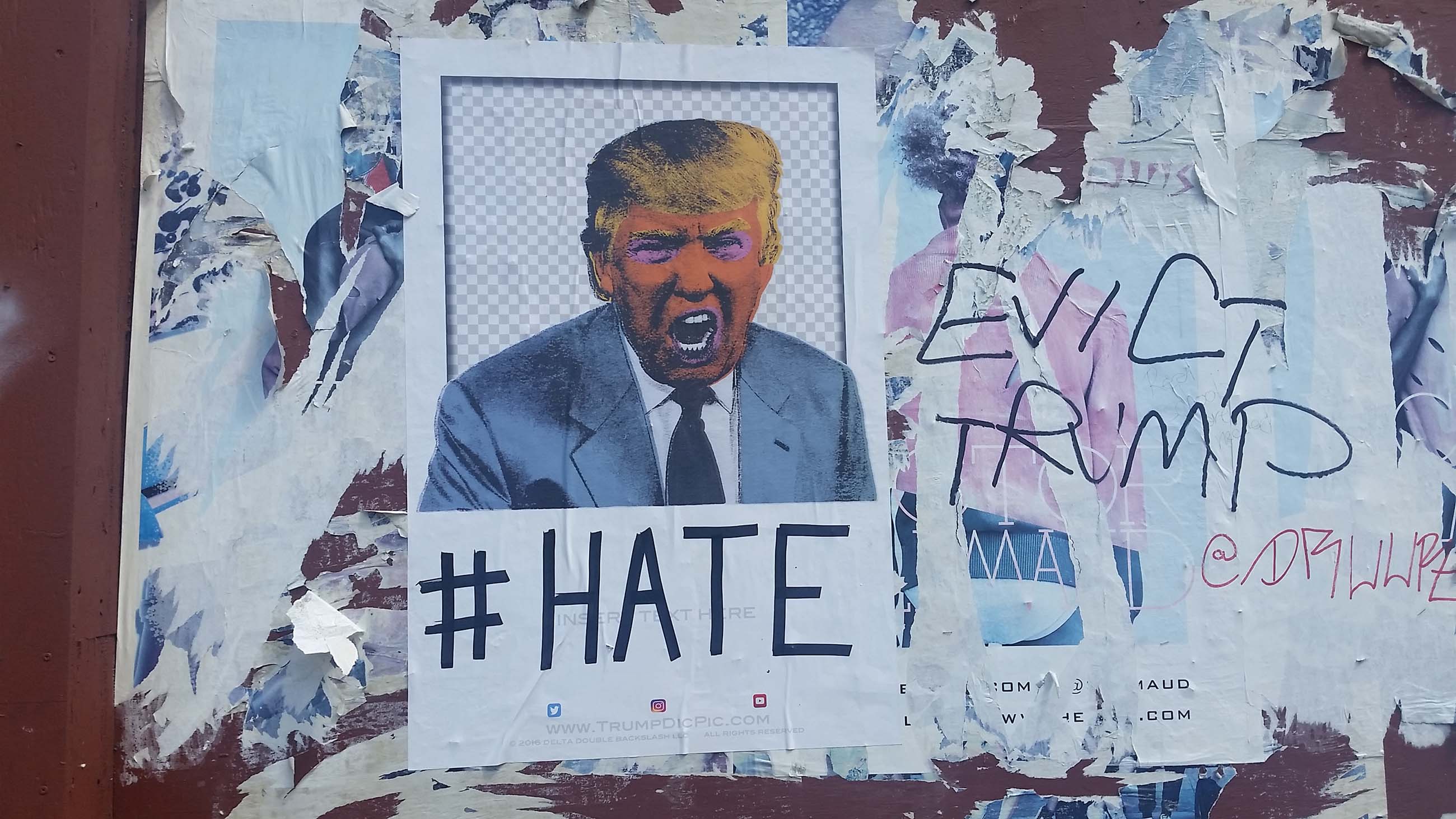One of the key findings in the scientific study of prejudice is that while overt expressions are decreasing, discriminatory beliefs, feelings, and attitudes are by no means going away. Rather, they are more appropriately described as being hidden away — and just as there are forces that can keep negative thoughts and behaviors suppressed, there are other forces that can unleash them.
A perceived social norm is one such powerful force, as a well-known experiment from the 1960s demonstrated. In that study, the Stanford psychologist Albert Bandura showed that after watching a woman aggressively attack a blow-up Bobo doll, children would readily imitate her behavior. Other children who saw not just the attack, but also witnessed the woman being punished for the assault afterward, did not imitate her — at least not until they were told that they would go unpunished for an attack. These children responded with violent glee.

Stanford psychologist Albert Bandura showed in the 1960’s that after watching a woman aggressively attack a blow-up Bobo doll, children would readily imitate her behavior.
It shouldn’t be surprising, then, that overt acts of prejudice have demonstrably spiked following Donald Trump’s victory over Hillary Clinton in the recent race for the U.S. presidency. Trump’s campaign over the preceding 18 months featured a procession of racist and ethnocentric rhetoric, with repeated insults, gross generalizations, and other derogatory speech hurled at Mexicans, Muslims, and women.
The Southern Poverty Law Center, a civil rights advocacy, has tallied over 400 incidents or discrimination or harassment — from epithets hurled at blacks, Latinos, and Muslims, to harassment of women and acts of vandalism involving swastikas — in just the first week since Election Day.
The psychological literature tells us that these words and actions matter.
Research has shown, after all, that most Americans have prejudices of one kind or another — whether based on race, gender, ethnicity, religion, or sexual orientation. In most cases, we wrestle with these thoughts internally, and in a social context where overt expression is taboo, we suppress them. But Trump’s election appears to have helped at least some people to resolve their inner conflicts in favor of expression.
In our own social psychology research lab at the University of Kansas, we surveyed 200 Trump supporters and 200 Clinton supporters just days before the election. We asked half of the participants in each group to rate their own personal feelings toward a variety of social groups that the Trump campaign had disparaged at one time or another over the course of the race. These included Muslims, immigrants, Mexicans, fat people, and people with disabilities. We also asked them to rate their feelings toward groups that the Trump campaign had not attacked, including alcoholics, adult film stars, rich people, members of National Rifle Association, and Canadians. Participants rated their feelings on a scale from 0 to 100, with the low end representing negative feelings and the high end representing positive feelings.
The other half of participants among the Clinton and Trump supporters were asked to assess not their own feelings, but how acceptable they thought it to was say negative things about the people in these various ethnic and social groups — including those that were disparaged by Trump, and those that were not.
We contacted the same pool of participants and asked them the same questions after the election, and the comparison of the pre- and post-election responses was telling. With a roughly 86 percent response rate, assessments of both personal and general prejudices remained unchanged for both sets of supporters with regard to the groups that Trump had not publicly targeted. But for the groups that Trump had disparaged, both Trump and Clinton supporters reported slightly lower levels of personal animus, and significantly higher levels of perceived acceptance for discriminatory speech directed at them.
In short: The perceived norm had shifted. This was particularly telling, given that most of the charged rhetoric from the Trump campaign had occurred well before the window of our survey.
Donald Trump’s campaign and successful election may have ushered in a new normal with regard to prejudicial speech.
These new norms matter. To belong to a group, one must follow its rules, and people tend to follow prejudicial norms strikingly well. In another study from our lab, we asked some participants to rate 105 social groups (e.g., Blacks, feminists, lazy people, drunk drivers) on a scale similar to the one used in the more recent analysis. We also asked a separate group of people to rate how acceptable it was to feel negatively toward these same groups — the perceived norm of prejudice. In the end, participants’ individual reports of their own prejudice correlated almost perfectly with reports from the other group on perceived norms, suggesting that ambient cultural norms relating to prejudice are a powerful force in the creation of an individual person’s prejudice.
These findings aren’t all that remarkable, and there is no shortage of research demonstrating that people are highly responsive to their community’s accepted displays — or suppression — of prejudice. More simply: people express the prejudices that are socially acceptable and they hide the ones that are not. The election of Donald Trump did not create new prejudices, but by changing what a significant percentage of the population believes to be acceptable, his victory has almost certainly unleashed prejudices in people who already had them.
What that might mean for the coming four years remains an open question, though Trump has attempted to strike a conciliatory tone immediately after his victory.
“I pledge to every citizen of our land that I will be president for all Americans, and this is so important to me,” Trump said in the early hours after the election was called. “For those who have chosen not to support me in the past, of which there were a few people, I am reaching out to you for your guidance and your help so that we can work together and unify our great country.”
The President-elect is not off to a good start on that front.
Earlier this week, Trump appointed as his chief of staff Stephen Bannon, the former executive chairman of Breitbart News Network, which The Southern Policy Law Center has called “a white ethno-nationalist propaganda mill.”
“In his victory speech, Trump pledged to be the president for ‘all Americans’ and to ‘bind the wounds of division’ in our country,” SPLC President Richard Cohen declared in a statement issued Monday. “Appointing someone like Bannon, who will have the president-elect’s ear every single day, makes a mockery of that pledge.”
Chris S. Crandall is a professor of social psychology at the University of Kansas specializing in the study of prejudice, and he is president of the Society for the Psychological Study of Social Issues. Mark H. White, II, is a PhD candidate in the Social Psychology program at the University of Kansas.











Comments are automatically closed one year after article publication. Archived comments are below.
Ever since trump took over there is not one day that goes by that I hear a racist remark against Mexicans. I now get asked if I speak English, where I’m from and if my parents were here illegal. My great grandparents on both sides of family were born and raised in New Mexico. One of my great parents are Apache. I was born in New Mexico. I served in the Marine Corps for 8 years. I worked as a Federal Officer for 27 years and I’m now working at a local police department in Texas. I’m probably more of a US American than most of the name callers. All my life I’ve been going thru this and I’m tired of all this crap. What’s next?
Frankly, I think most of your ideas here are nonsense, poppycock, and baloney. I have seen no evidence of racism or misogyny or similar regarding Donald Trump. Rather, I have consistently seen the opposite. The examples are many of his loving America and Americans, as he is an American. I do agree that some folks afraid of speaking their conservative minds now do speak what they wish. They are free to do that. And I am glad.
– Dr David H Menke, PhD, MS, BA, Professor of Physics & Astronomy (retired). CalState University, Southern Utah University, Central Connecticut State University, and others over 44 years.
Great piece and great data here! Did you look at the descriptive and injunctive norms separately, at all?
Whites need to re-learn to stand up for themselves. We’ve let anti-white activists like SPLC’s (((Richard Cohen))) drive the agenda. It’s time for pro-white voices to assert themselves.
Yes, brilliant response; really going against the grain on this article…good for you, independent thinker. I agree.
It’s time for “pro-white” racists to expose themselves. Maybe us whites have gotten so complacent or blinded by our own privilege (certainly we are blinded by it) that we are afraid to speak our minds. Let them hear what you have to say! Tell the world that you are standing up for our white rights! It’s clearly time for the world to hear you, to know what you really think, and to educate you. It’s time for the world to learn how to deal directly and openly with “pro-white” voices. They are so rare that when we hear them, it is shocking and dumbfounding. Please, do give us a chance to practice our responses. Clearly it’s going to take some very skillful dialogue to get through to you. Do keep giving us the chance.
mmmm …
the sweet smell of sarcasm.